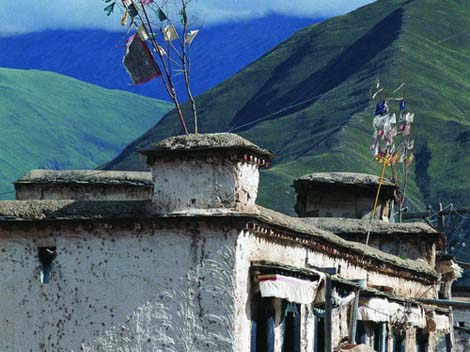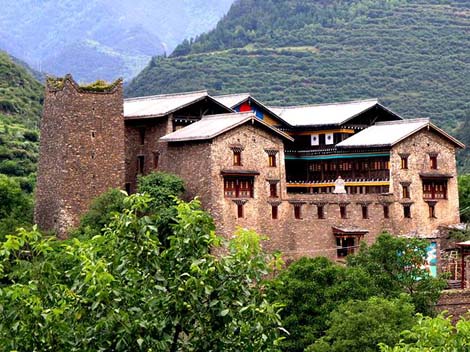
Diaofang (stone chamber) is the most popular kind of dwellings in Tibet and some areas in Inner Mongolia. According to The History of Later Han Dynasty, this stone and earth dwellings existed before 111 AD. The height of the dwellings varies from two to three storeys. Built mostly of stone and earth, they look like diaolou (blockhouse), and hence got the name of diaofang. The origin of its name can be traced back to 1736 in Emperor Qianglong's reign of the Qing Dynasty (1644-1911).
On the mountainous Qinghai-Tibet Plateau, it would be difficult to construct a building if it takes too much space. Therefore, the stone chambers are usually designed in a very compact way with multiple storeys. Tibetan houses also possess skylights and ventilation spots. While the house is very delicately and meaningfully decorated inside, it reveals a powerful and robust style outside. Under the intense Tableland sunshine, diaofang appears exceptionally dazzling.

Diaofang are generally of two or three storeys: The first floor is often used for livestock and poultry, and the second is retained as bedrooms, living rooms, kitchen and storehouse. Some have a third floor for the family sutra hall and the balcony.
A good combination of wood and stonewalls enriches the shape. This does not only meet the functional purpose, but also gives prominence to artistic effect, making the style different from any other folk residence. The construction is solid enough to resist earthquakes and well designed to keep the inside warm.
We recommend:
